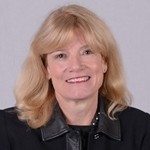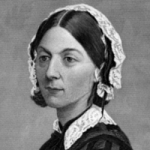 Terry Fulmer, PhD, RN, FAAN, AGSF
Terry Fulmer, PhD, RN, FAAN, AGSF
President, The John A. Hartford Foundation
University Distinguished Professor and Dean
Bouve College of Health Sciences, Northeastern University
The field of geriatrics relies on so many different healthcare professionals to provide expert, high-quality, patient-centered care for older adults. In honor of National Nurses Week 2015 (May 6-12), we’re celebrating the commitment of nurses committed to elder care by helping them share their stories in their own words. Here’s what Terry Fulmer—the new president of The John A. Hartford Foundation and a professor of Public Policy and Urban Affairs at Northeastern University—had to say about her career as a gerontological nurse practitioner.
It was her first experience as a nurse that convinced Terry Fulmer the best part of nursing was caring for older patients. Fresh from Skidmore College, where she earned her BS in Clinical Nursing in 1975, Dr. Fulmer had just started working as a staff nurse at Boston’s Beth Israel Hospital, one of Harvard’s teaching hospitals.
“I discovered in the midst of this remarkable teaching hospital that I had this incredible autonomy and authority when working with the older patients,” says Dr. Fulmer, whose mother was a nurse and who decided (at age five) that no other profession could possibly be more exciting or satisfying. “Older adults often need help with activities of daily living, and when they’re very ill, they often need help with geriatric syndromes such as incontinence, confusion, and falls, and that’s all in the domain of nursing care,” she continues. “A physician might diagnose those problems but it’s the nursing practice that creates a care plan to address them. With older patients, the most important component of care, by far, is nursing care. It’s very motivating.”
After recognizing that geriatric nursing was for her, Dr. Fulmer’s first step was to go back to school. While working at Beth Israel, she earned her Master’s degree at Boston College and started her doctorate. Before she’d even finished her PhD she was offered and accepted a position as assistant professor of nursing at the college, where she both taught and began doing research into the detection and prevention of elder abuse and neglect. Dr. Fulmer, who was soon promoted to associate professor, also headed the Beth Israel Hospital Elder Abuse Committee.
Elder abuse remains a focus of Dr. Fulmer’s research and is among several areas in which her work has had considerable impact. In addition to publishing scores of papers, sitting on key panels, and training healthcare professionals to detect abuse and neglect, Dr. Fulmer also played a key role in the development of the Elder Assessment Instrument, a screening checklist now used nationwide.
“I’ve had families call and say that because of our work in this area, they recognized elder abuse in their families,” says Dr. Fulmer. “I’ve also had nurses tell me they’ve been able to help patients because of our work. And I’ve heard from promising young scientists in nursing, medicine and other disciplines that they’ve been impressed by the work and want to carry it on. That’s even better.”
Along with clinical care and research, teaching and training have always been Dr. Fulmer’s passions. “Working with students, every day there’s an ‘Aha!’ moment when they know they’re improving the quality of life for their patients,” Dr. Fulmer says. “You might show a student nurse how to provide excellent mouth care for an older adult who, as a result, is able to eat more nutritiously. It’s amazing. All of a sudden there’s this profound moment when you help them understand how pivotal their work is.”
“You know, I have the same passion today that I had when I started,” adds Dr. Fulmer.” I can’t imagine anything I’d rather do than care for older patients and teach others to do the same.”


